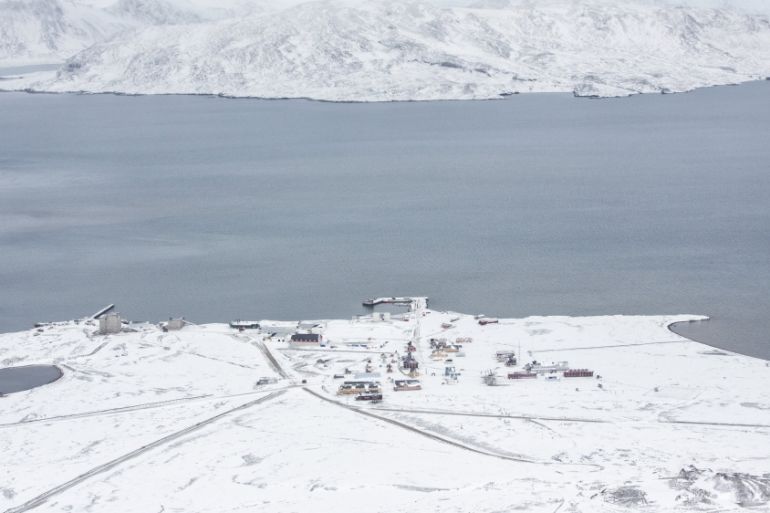NASA: Global warming now changing how Earth wobbles
Scientists say massive melting of polar ice has affected the distribution of the planet’s weight.

Global warming is shifting the way the Earth wobbles on its polar axis, a new NASA study says, highlighting what one expert said is the “large” impact humans have on the planet.
According to the study published on Friday in the journal Science Advances, melting ice sheets – especially in Greenland – are changing the distribution of weight on Earth.
Keep reading
list of 4 itemsInside the pressures facing Quebec’s billion-dollar maple syrup industry
Coral reefs around the world experiencing mass bleaching, scientists say
Mass evacuations as floods in Russia’s Kurgan region set to peak
As a result, both the North Pole and the wobble, which is called polar motion, have changed course.
“The recent shift from the 20th-century direction is very dramatic,” said Surendra Adhikari, lead author at NASA’s Jet Propulsion Lab.
While scientists said the shift is harmless, it is meaningful.
|
|
Jonathan Overpeck, professor of geosciences at the University of Arizona, who was not part of the study, said: “This highlights how real and profoundly large an impact humans are having on the planet.”
Scientists and navigators have been accurately measuring the true pole and polar motion since 1899, and for almost the entire 20th century they migrated a bit towards Canada.
But that has changed in this century, and now it is moving towards England, according to the study.
Since 2003, Greenland has lost on average more than 600 trillion pounds of ice a year, and that affects the way the Earth wobbles in a manner similar to a figure skater lifting one leg while spinning, said NASA scientist Eirk Ivins, the study’s co-author.
On top of that, West Antarctica loses 275 trillion tonnes of ice and East Antarctica gains about 165 trillion tonnes of ice each year, helping tilt the wobble further, Ivins said.
They all combine to pull polar motion towards the east, Adhikari added.
Jianli Chen, a senior research scientist at the University of Texas’ Centre for Space Research, first attributed the pole shift to climate change in 2013. He said this new study takes his work a step further.
“There is nothing to worry about,” said Chen, who was not part of the NASA study. “It is just another interesting effect of climate change.”